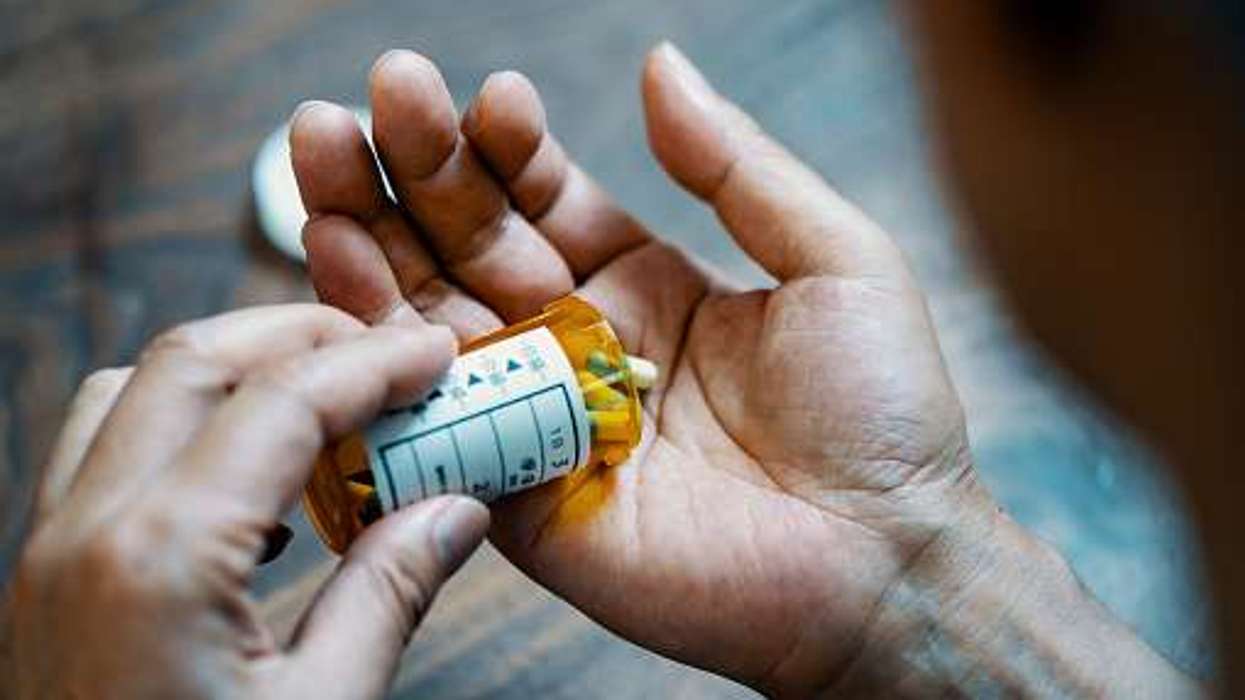Amanda Pritchard, the new NHS chief executive, has encouraged people with potential cancer symptoms to come forward for lifesaving checks.
Pritchard said that the NHS is open and ready to treat people and urged anyone with potential cancer symptoms to come forward.
The next phase of the ‘Help Us, Help You’ campaign, launched on Monday (August 16), from NHS England, with support from Public Health England, will use TV and digital adverts, posters and social media to raise awareness of symptoms of cancers in the abdominal area, urological cancers, and lung cancer.
The ads will feature people with a range of symptoms, such as prolonged discomfort in the tummy area or a persistent cough, and aim to persuade people experiencing these to contact their GP.
Pritchard said: “We know that thousands of people could be risking their lives by delaying medical attention for cancer symptoms.
“We are open and ready to treat people with potential cancer symptoms... this campaign will remind people of the signs and symptoms to look out for and encourage them to get checked if something isn’t quite right.
“Thanks to the hard work of NHS staff, we are back on track with cancer referrals, diagnosis and treatment so, whether you or a loved one has a routine appointment, or a potential cancer symptom, please don’t delay and come forward to get yourself checked – we would rather see you sooner when any cancer would be easier to treat.”
Around a quarter of a million people were checked for cancer in June, the second highest number on record. More than 27,000 people started treatment for cancer in June, a 42 per cent increase from the same period last year.
Pritchard highlighted that there could be tens of thousands more people who are not coming forward for checks, either because they’re unaware of common cancer symptoms, or because they feel they would burden the NHS.
According to the NHS, many people in England are unaware of common warning signs of cancer – which could prevent them seeking help. It also revealed that abdominal and urological cancers account for nearly 44 per cent of all cancer diagnoses and for about 41 per cent cancer deaths in England.
Nearly 63 per cent people said they didn’t recognise discomfort in the abdominal area for three weeks or more as an indication of cancer.
The new campaign will also highlight common signs of lung cancer – after research has found that two in five people don’t recognise that a persistent cough for more than three weeks as a sign of the disease. Meanwhile, there is also concern the symptom could easily be confused with Covid-19.
Health Minister, Lord Bethell, said: “No one should be deterred from seeking potentially life-saving diagnosis and treatment. The launch of the next phase of the NHS’s Help Us, Help You campaign will help raise awareness of the symptoms of certain cancers and encourage people to speak to their GP if they have any concerns.
“We are backing the NHS to recover from this pandemic and tens of thousands are starting treatment for cancer every month, so don’t delay and seek advice as soon as possible so we can save even more lives.”
Health and Social Care Secretary, Sajid Javid, said: “NHS staff have pulled out all the stops to prioritise cancer care throughout the pandemic, with millions of diagnostic tests now being carried out a month. Thanks to their dedication, the NHS is open for us all and anyone who has concerns should come forward.
“If you suspect you might have symptoms of cancer, as highlighted by this important new campaign, don’t hesitate to seek advice from your GP. The earlier we can spot cancer, the more lives we can save.
“I will continue to support the NHS to deliver the appointments, operations and treatment people need, as we get back to normal life as quickly as possible.”
Dame Cally Palmer, Director of the NHS Cancer Programme, said: “Over the last few months we’ve seen record demand for cancer services and it’s encouraging that so many people came forward for potentially life-saving checks in June.
“We want to build on this success, and make sure that people who might be experiencing symptoms are not afraid or anxious about coming forward. Our message is clear – if you are experiencing any worrying symptoms, please see your GP.”
Symptoms that could be possible signs of abdominal or urological cancers include:
- Discomfort in the tummy area for three weeks or more
- Diarrhoea for three weeks or more
- Blood in your pee – even just once
For lung cancer, symptoms can include:
- A cough for three weeks or more that isn’t Covid
- Chest infections that keep coming back
- Coughing up blood
People are also advised to speak to their GP if they notice any other unusual changes, such as a lump in the tummy area, post-menopausal bleeding, or unexplained weight loss, as these can also be signs of cancer.
Professor Peter Johnson, National Clinical Director for Cancer, said: “It’s important to get checked as soon as possible if you notice something that isn’t normal for you. Most symptoms will not be from cancer, but if they are, seeing someone quickly will give you the best chance of diagnosis at an earlier stage when cancers are easier to treat.
“This is particularly important where symptoms are less obvious: some uncommon cancers can be hard to pin down, which can mean they take longer to diagnose and treatment time is lost.











